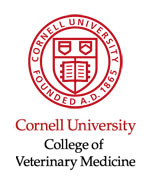C.S. Rutebarika
Dr. Chris S. Rutebarika received his Bachelor of Veterinary
Medicine degree from the Makerere University, Kampala in 1979
and his Master of Science degree from the Royal Veterinary College,
University of London in 1990.
He worked as a field veterinarian for ten years and he is currently in charge
of disease control at the Department of Livestock Health and Entomology, where
he has worked in various capacities since 1991. He is the National Coordinator
of the Pan African Control of Epizootics Programme in Uganda. |
|










